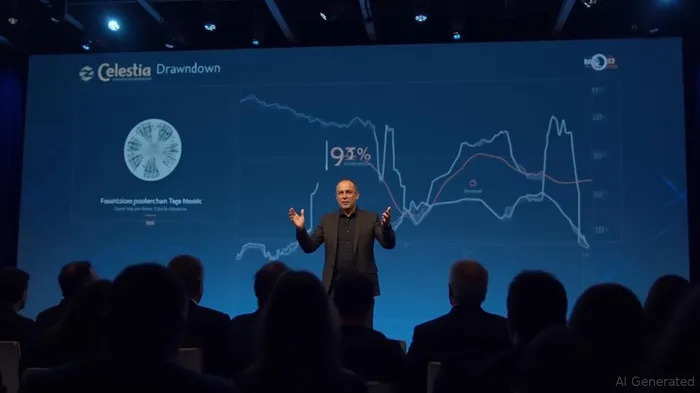Celestia Co-Founder Defends Project Amid 95% Token Drawdown Allegations
Celestia co-founder Mustafa Al-Bassam has asserted that the team remains dedicated and financially prepared to navigate the current challenges despite escalating allegations of misconduct, insider profit-taking, and community mistrust. In a recent post on X, Al-Bassam emphasized that all Celestia founders, early employees, and core engineers are still actively working on the project, maintaining the same level of commitment as when Celestia was launched five years ago.
Al-Bassam addressed the recent criticism by highlighting that significant token drawdowns are a common occurrence in the industry. He underscored Celestia's long-term viability, citing a substantial financial reserve of over $100 million and a runway of more than six years. This statement comes amidst growing criticism from token holders and independent researchers who allege that the Celestia team and insiders offloaded large quantities of TIA tokens while retail investors bore the brunt of the token’s 95% drawdown.
Al-Bassam’s post appears to be a response to a critical thread on X by Startup Anthropologist, which attracted over 200,000 views. The thread accuses the Celestia team of coordinated financial misconduct, alleging that all c-suite members had token unlocks in early October and that Mustafa Al-Bassam sold over 25 million tokens in an over-the-counter (OTC) transaction before moving to Dubai. The thread further claims that prominent figures were paid to promote the TIA token while employees quietly offloaded their holdings.
Another X user, Shrutebuck, criticized the timing of the token unlocks, suggesting that early investors and the team were rewarded at the expense of retail investors. The criticism also targeted Celestia’s token unlock schedule, with users questioning the rationale behind a token unlock that lasts for three to four years. This criticism reflects broader concerns about the project's market strategy and its ability to sustain long-term viability.
Criticism of Celestia is not new. In May, investor Larry Sukernik described Celestia as a cautionary tale in attempting to brute-force market traction through narrative and marketing. He argued that appchains and vertical integration only succeed with loyal user bases, something Celestia may lack at scale. Sukernik pointed to poor timing in Celestia’s go-to-market push, noting that the project was launched before rollups became central to blockchain scaling.
Al-Bassam responded to Sukernik’s criticism by defending the project’s relevance, citing over 30 rollups deployed on Celestia and claiming it controls around 50% of the data availability (DA) throughput market. He argued that Celestia is the default solution for alternative data availability (alt-DA) solutions. However, Sukernik questioned whether Celestia jumped into the DA space prematurely, given the still-nascent demand from rollups. He noted that while Celestia has market share, it may not translate into real economic traction.
Despite the criticism, Al-Bassam’s assertion of a $100 million war chest and a six-year runway suggests that Celestia is financially equipped to weather the current storm. The team’s commitment to the project, as highlighted by Al-Bassam, indicates a long-term vision for Celestia’s success. However, the allegations of misconduct and insider profit-taking raise questions about the project’s transparency and governance, which could impact its future trajectory.

Quickly understand the history and background of various well-known coins
Latest Articles
Stay ahead of the market.
Get curated U.S. market news, insights and key dates delivered to your inbox.



Comments
No comments yet